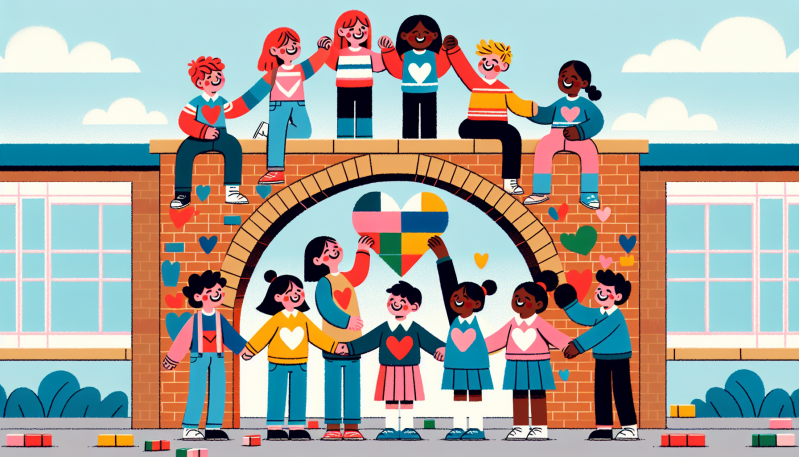As the guardians of our children’s daily learning and social engagement, educators hold a position of remarkable influence and responsibility. However, the traditional role of a teacher has significantly evolved, and the lines between imparting knowledge and looking after the students’ well-being have increasingly blurred. Today, the rise in mental health issues among children and adolescents is not just a matter for psychologists but for the entire educational ecosystem.
At Friendship Week, our mission resonates with this reality—we understand that schools are not just centers for academic learning but are critical in shaping the social and emotional landscape of our young learners. And while academic achievements are measurable and celebrated, mental health often remains a hidden aspect of a student’s life that requires just as much attention.
The Growing Challenge
Anxiety, depression, bullying, and other social pressures are no longer anomalies; they are part of the complex challenges that students face every day. Data shows a disturbing rise in such cases, indicating that mental health care is essential within the educational structure. However, teachers and school personnel have historically had limited training in this pivotal area, placing them at a crossroad of roles that extends beyond their formal training.
First Aid for the Mind
Just as we wouldn’t expect a school to operate without a first aid kit for physical injuries, we shouldn’t expect our educators to navigate student mental health challenges without appropriate resources. Mental Health First Aid—a term gaining significant traction—encourages an environment where signs of emotional and psychological distress are not only recognized but are met with knowledgeable and compassionate responses.
Creating Supportive Spaces
In our quest to champion such environments, we advocate for the following strategies:
1. Professional Development: Offer regular training sessions for educators and staff to identify the signs of mental health issues and learn how to engage in initial supportive conversations with students.
2. Curriculum Integration: Embed mental health education into the curriculum, normalizing conversations about emotional well-being, and enabling students to learn about self-care, empathy, and kindness—an approach central to DEI (Diversity, Equity, and Inclusion) principles.
3. Resource Accessibility: Ensure that educators have a clear and accessible referral pathway for students who need professional support, along with a list of tools and contacts for local mental health services.
Signposting the Way Forward
Understanding the signs of distress and knowing how to respond is vital. We believe in fostering an atmosphere where signs like withdrawal, academic decline, or behavioral changes trigger a supportive and well-informed reaction. Here’s how we can collectively make a change:
– Early Identification: Educators can be trained to identify early warning signs of mental health issues, ensuring timely intervention.
– Open Dialogue: Initiating conversations about mental health should be as routine as discussing physical health. Destigmatizing these topics is key.
– Empowered Referrals: Knowing when to refer a student to a counselor or mental health professional is crucial. It’s about understanding the limits of one’s role and the importance of expert intervention.
Ultimately, Friendship Week envisions schools as sanctuaries of kindness, where mental health is given the spotlight it deserves. By empowering educators, we pave the way for healthier, happier, and more resilient students. After all, a child supported in mind and spirit is one who is truly equipped to learn, grow, and thrive.
Let’s not wait any longer to make mental health first aid a standard part of our educational institutions. As we navigate this vital landscape, let’s join hands and hearts to create a culture of understanding and support, for the well-being of our future generations.


